|
|
|
|
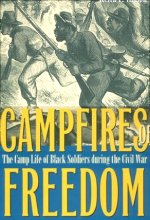 Campfires of Freedom: The Camp Life of Black Soldiers During the Civil War African-Americans - both freemen and ex-slaves - enlisted for a variety of reasons, from patriotism to sheer poverty. Like many of their white counterparts, they attributed theological significance to the war Kindle Available 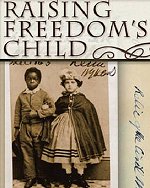 Raising Freedom's Child: Black Children and Visions of the Future After Slavery Previously untapped documents and period photographs casts a dazzling, fresh light on the way that abolitionists, educators, missionaries, planters, politicians, and free children of color envisioned the status of African Americans after emancipation Colored Troop Books |
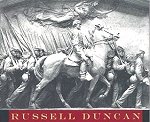 Where Death and Glory Meet: Colonel Robert Gould Shaw and the 54th Massachusetts Infantry The history of how our culture determines manhood. Although a rather detached supporter of abolition, Shaw was skeptical about the fighting abilities of freedmen, and initially declined the command. When he did accept, he was aware that the eyes of the nation were on his regiment, and his training of them was relentless. The 54th measured up by proving itself in battle Kindle Available 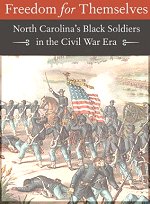 Freedom for Themselves: North Carolina's Black Soldiers in the Civil War Era The processes by which black men enlisted and were trained, the history of each regiment, the lives of the soldiers' families during the war, and the experiences of the colored veterans and their families living in an ex-Confederate state 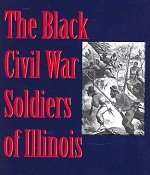 The Black Civil War Soldiers of Illinois: The Story of the Twenty-Ninth U.S. Colored Infantry Study in the lives of black recruits in the Civil War era, and a journey into the hinterlands of an American racial pathos. Throughout this study, Miller explores in detail the biographies of individual soldiers, revealing their often convoluted histories  Strike the Blow for Freedom: The 6th United States Colored Infantry in the Civil War The recruitment, training, battles and finally the mustering out of the 6th. The 6th shared some of the same influences that shaped the formation of many military units of that time 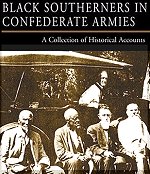 Black Southerners in Confederate Armies Official records, newspaper articles, and veterans' accounts to tell the stories of the Black Confederates. This well researched collection is a contribution to the discussion about the numbers of black Southerners involved and their significant history. 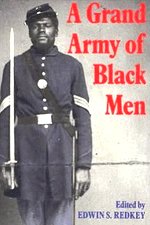 A Grand Army of Black Men: Letters from African-American Soldiers in the Union Army 1861-1865 Almost 200,000 African-American soldiers fought for the Union in the Civil War. Although most were illiterate ex-slaves, several thousand were well educated, free black men from the northern states |
District of Columbia. Company E, 4th US Colored Infantry at Fort Lincoln Black slaves who fled to Union lines, or "contrabands," often proved themselves extremely useful, even before the government enlisted them into service. A group of "contrabands" appear on this calling card. Calling cards, or cartes de visite, with photographs were popular during this era partly because photography was relatively new and the cards provided a means of sharing likenesses with friends and relatives. This one includes images of white officers of the 2nd Rhode Island Camp at Camp Brightwood in the District of Columbia. On the left is Capt. B. S. Brown. In the center is Lt. John P. Shaw, killed in action at the Wilderness, Virginia, May 5, 1864, and on the right is Lt. T. Fry. The "contrabands" with them are not named. A group of "contrabands." [Stereograph]
ca.1861 published later 29th Regiment from Connecticut |
Colored Troops
Colored Troops Pictures
African American Timeline
American Civil War Exhibits
Women in the War
Civil War Cooking
Civil War Submarines
Kids Zone Underground Railroad
Kids Zone Causes of the War
Dred Scott Decision
Benjamin Oliver Davis First Colored U.S. General
"A Black Woman's Civil War Memoirs," by Susie King Taylor, was Taylor was born a slave in 1848 on an island off the coast of Georgia. She gained her freedom and worked as a laundress for an African-American Union regiment during the war. Taylor recalls how she learned to read and write and then herself became a teacher. She offers fascinating details about her life with the troops. She had many different duties beyond laundry service. I loved the episode where she recalls concocting "a very delicious custard" from turtle eggs and canned condensed milk, and serving it to the troops. Taylor condemns the lack of appreciation shown for both black and white Civil War veterans. She also condemns early 20th century racism. Reading her book I was reminded of W.E.B. Du Bois' classic "The Souls of Black Folk," which was first published around the same time; I think the two books complement each other well. Taylor ends on a note of hope and pride, noting "my people are striving" for better lives. This book is, in my opinion, an important milestone in African American literature.
|
Sources:
U.S. National Park Service
U.S. Library of Congress.
|
Books Civil War Womens Subjects Young Readers Military History DVDs Confederate Store Civil War Games Music CDs Reenactors |